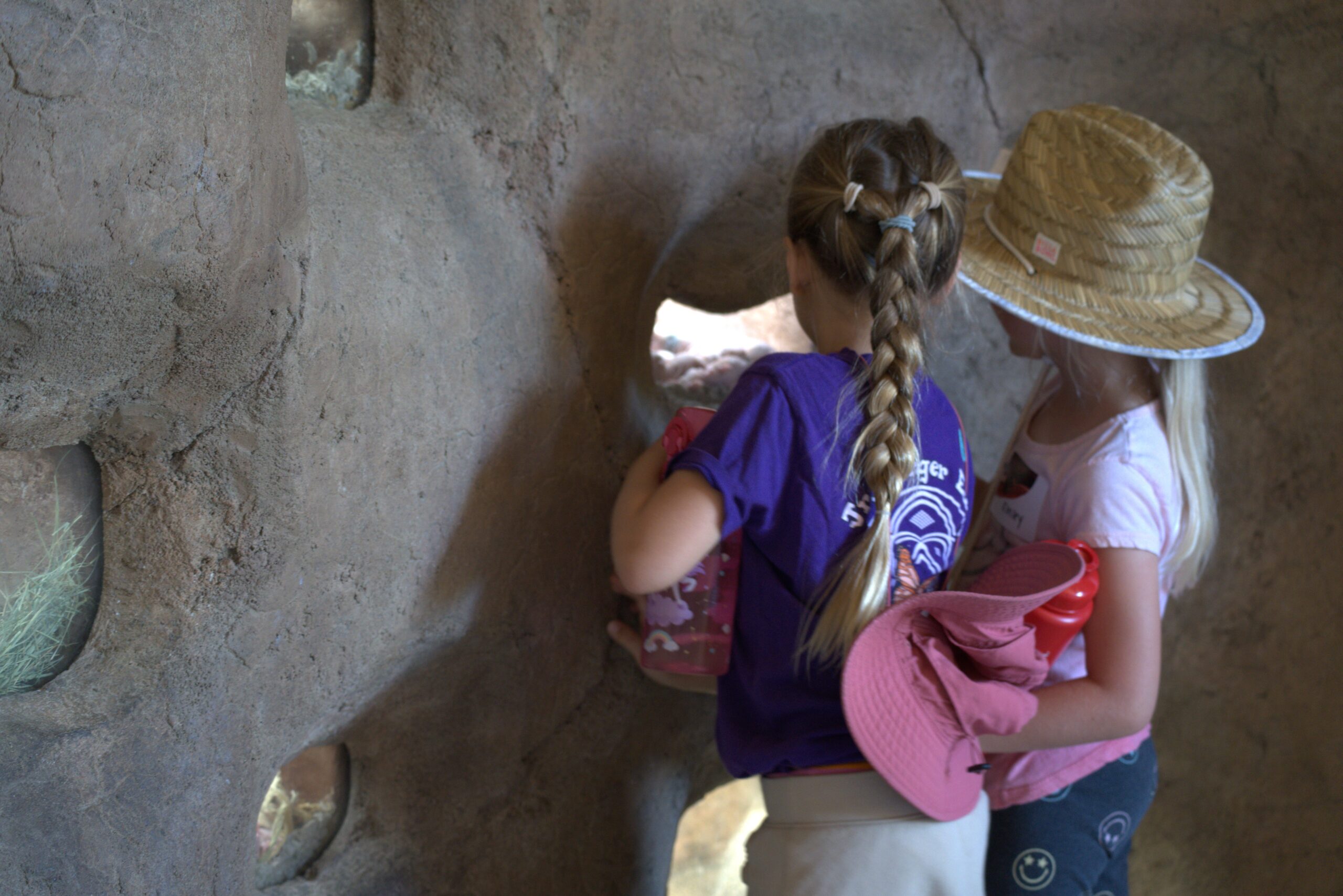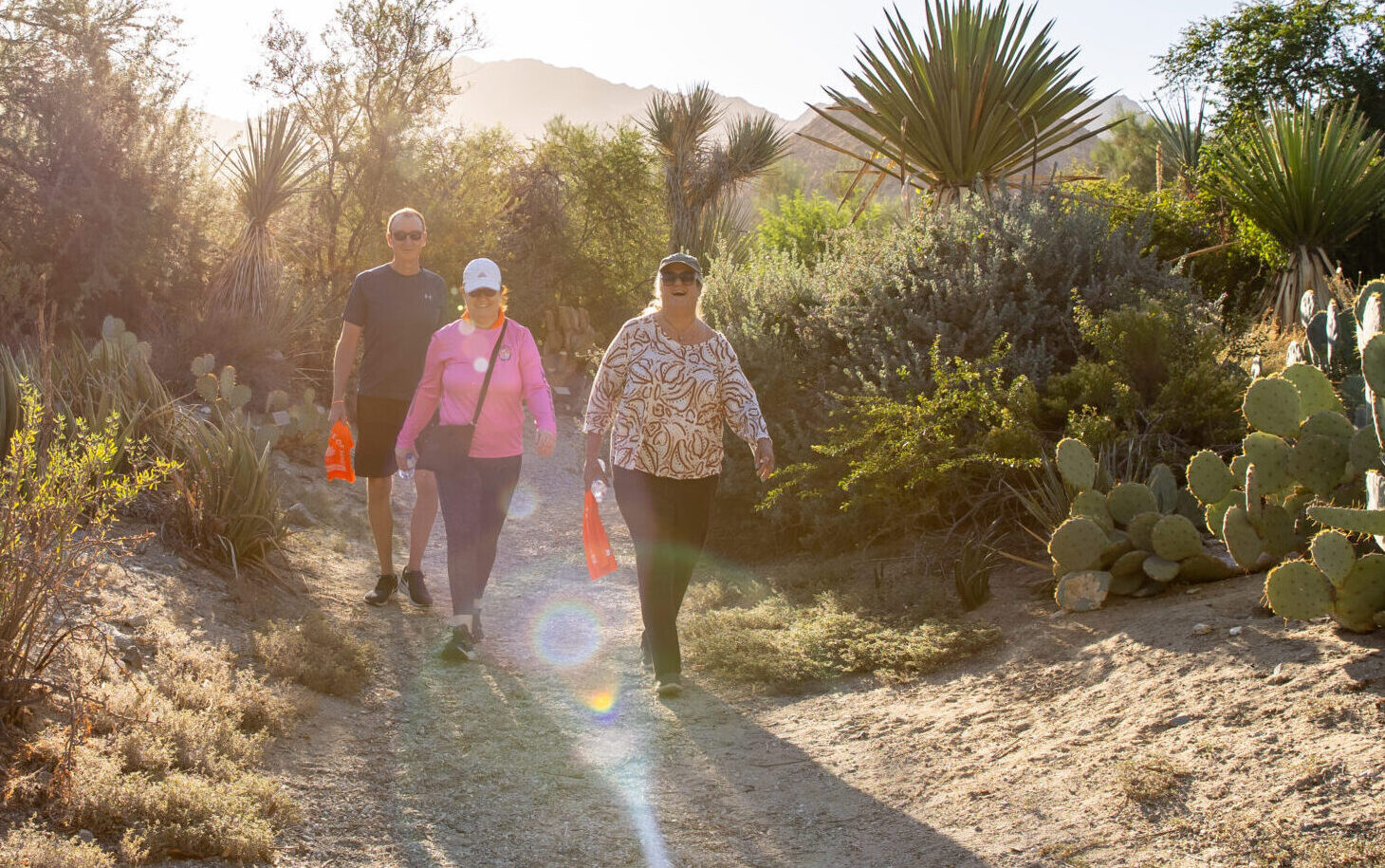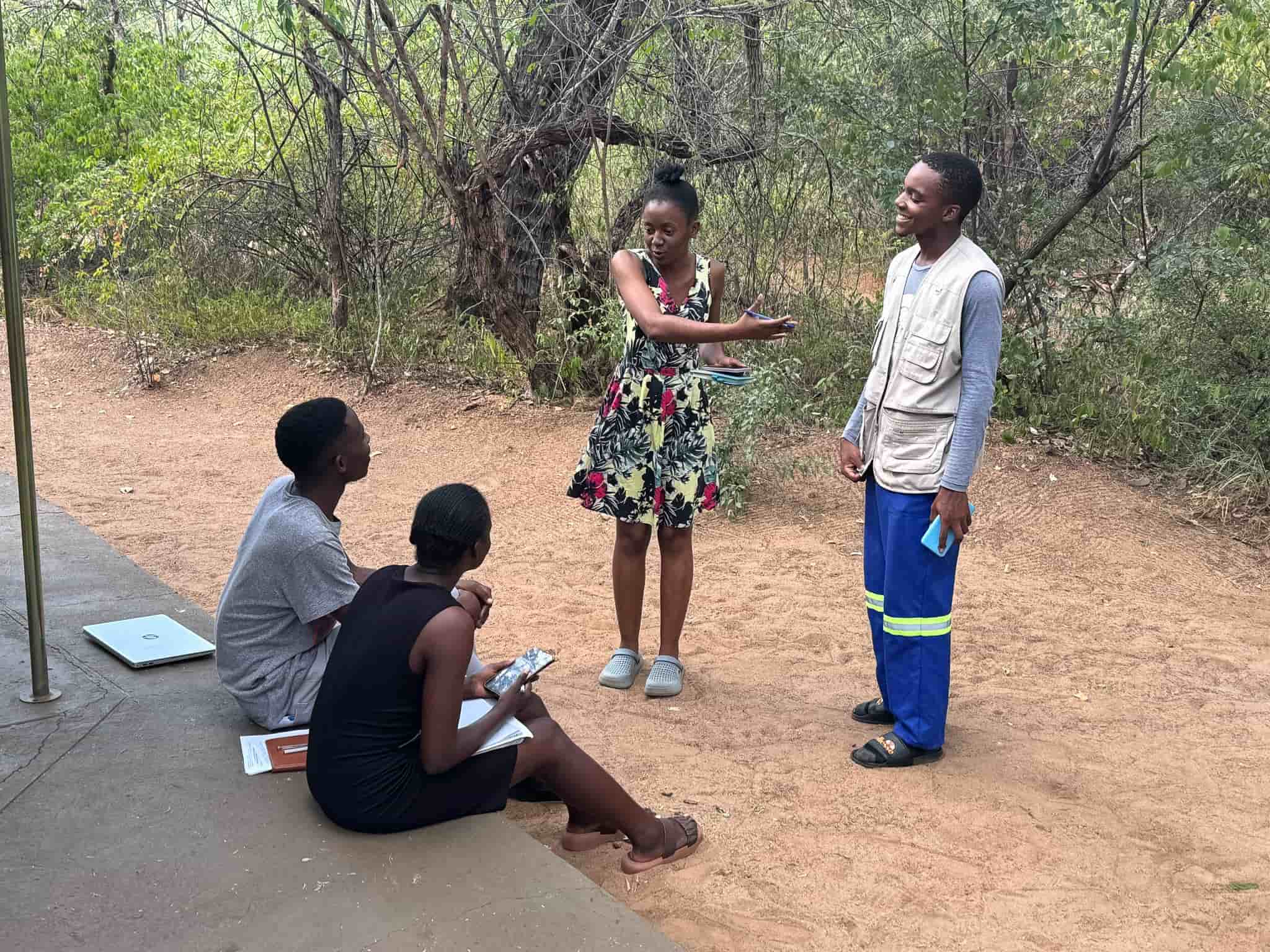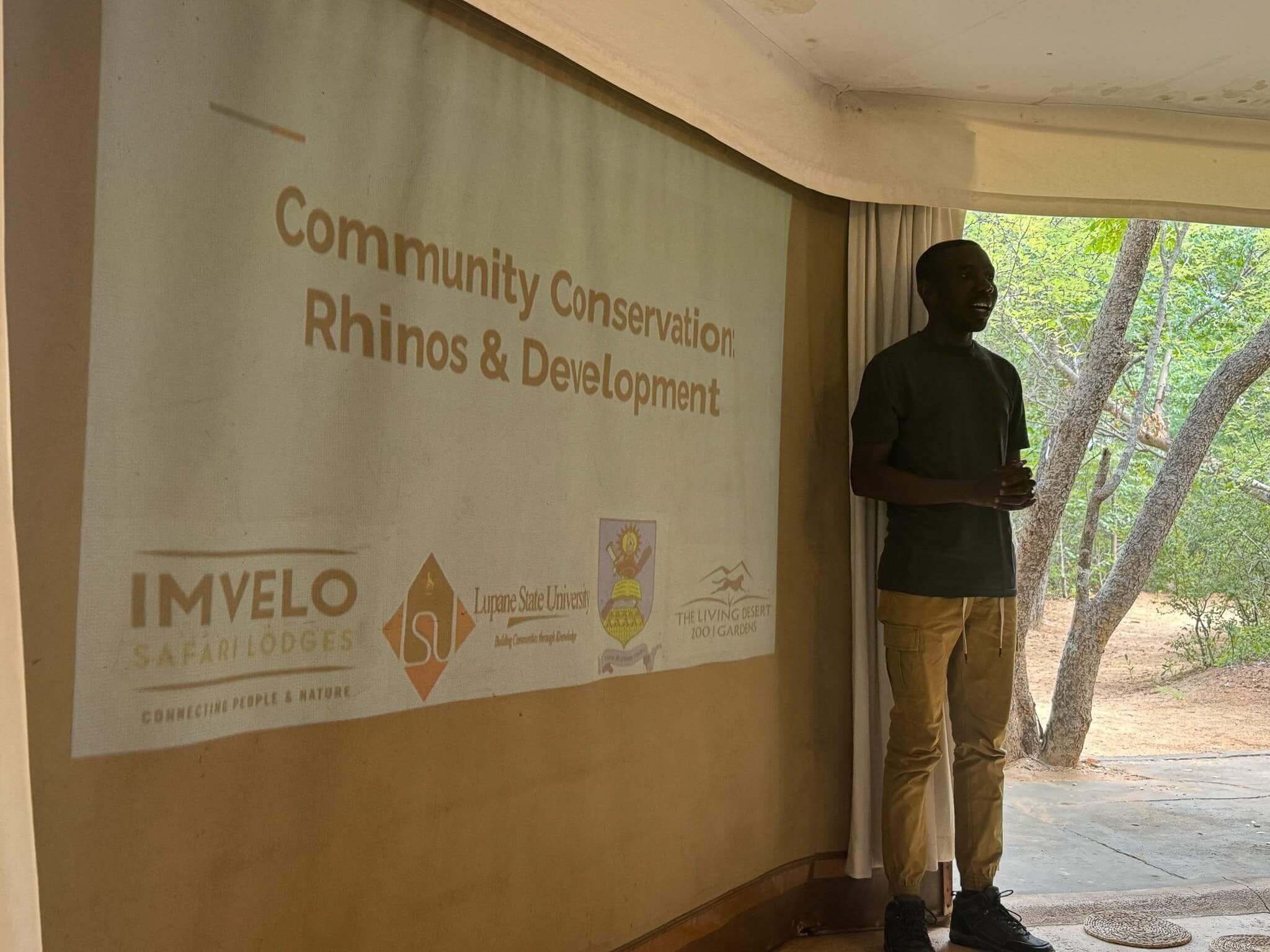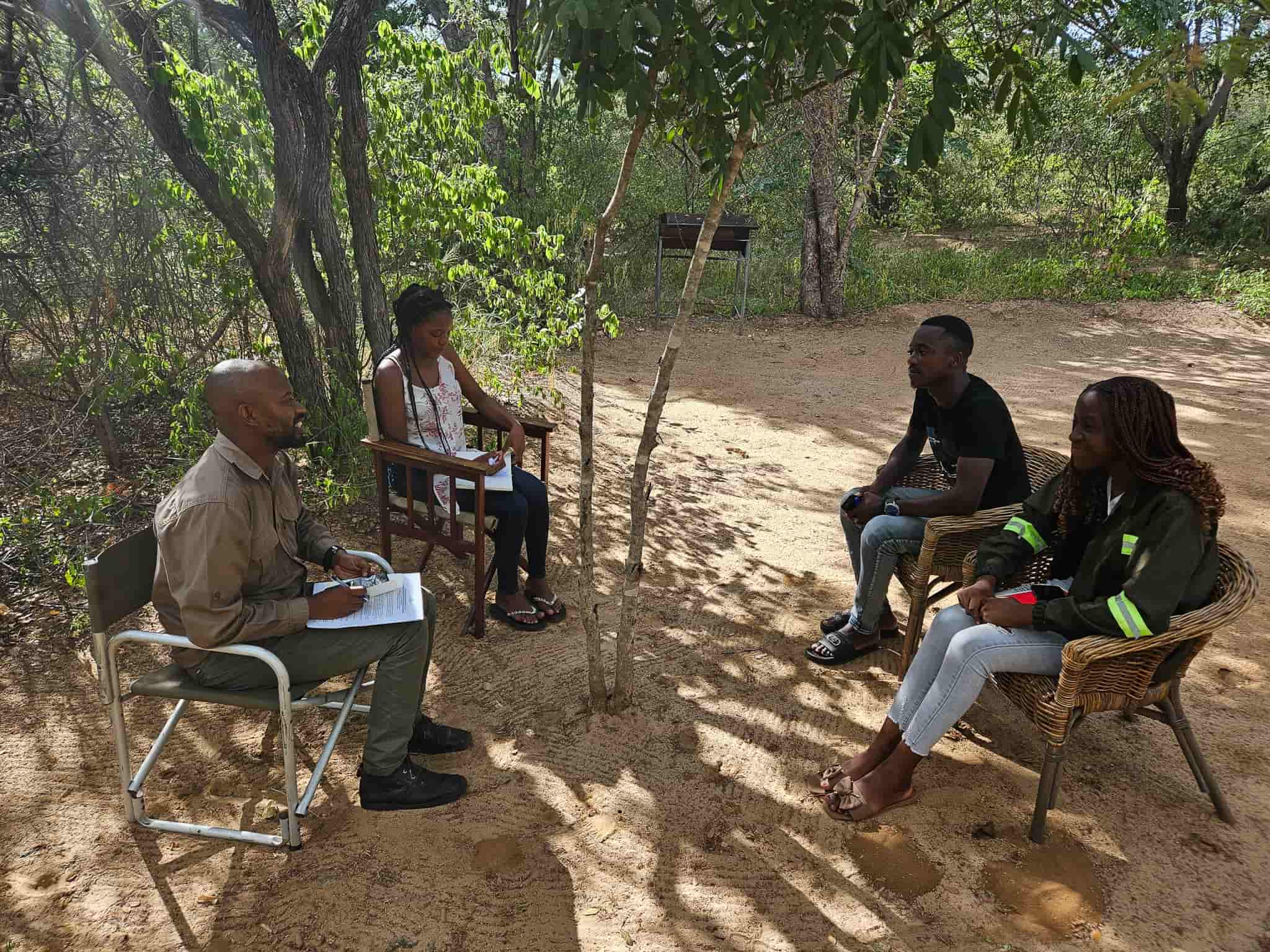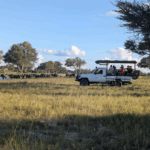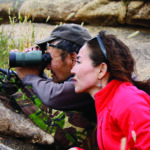By: Katie Shaw
Contact: [email protected]
The Living Desert, partnered with Imvelo Safari Lodges, held a Building Community Conservation Success workshop with students from Lupane State University and the National University of Science and Technology in Zimbabwe. Scientists from The Living Desert and Imvelo staff spent four days teaching students theoretical and practical skills, including foundational social science principles, how to create an interview script and knowledge of local culture and conservation projects. For the following three days, students interviewed community members across the communities of Manjelengwa, Emhlabeni, and Vulashaba along the southern border of Hwange National Park. Students interviewed community members about their interest in participating in the Community Rhino Conservation Initiative (CRCI), a project led by Imvelo and the local Rural District Council (RDC) in several nearby communities. The project involves communities donating some of their land to create a rhino conservancy. The conservancy serves to provide both economic benefits by attracting tourists and safety benefits by keeping wildlife from Hwange out of the communities.
Over their three days in the field, students worked tirelessly to conduct 117 interviews with community members. Although many students were initially very nervous to approach community members and conduct interviews, they reported that it got much easier with practice. Students worked in pairs, one as an interviewer and the other as a note-taker, since for many students, the local language (Ndebele) was not their first language.
Students spoke with at least one member of every household that was home; by interviewing more than one person in many households, we were able to hear the thoughts and opinions of a variety of community members, not just the heads of households. After the students finished conducting interviews, we reconvened to teach them how to input, manage, and analyze the data so they could present their results to Imvelo staff and community leaders on the tenth and final day of our workshop.
What we learned about community members’ knowledge and opinion of CRCI and the potential of having rhino-centered tourism in their communities provides valuable insight for Imvelo, the RDC, and other community leaders. We found that 68% of participants knew of the CRCI project that was already established in nearby communities and, despite a few concerns, generally had a positive opinion of it. This is due to the perceived benefits the conservancy provides, including an electric fence around the perimeter that participants perceive to be effective at decreasing conflicts with wildlife from the National Park.
Similarly, the majority of participants were supportive of donating some of their land and were interested in creating their own rhino conservancy. However, many participants had concerns about the project, primarily about the uncertainty of how much land would need to be allocated and the overall loss of grazing land, given that livestock is a primary source of income for many, particularly in the Manjelengwa community.
Surprisingly, there was no difference in interest in rhino-centered tourism between participants who had heard of CRCI and those who had not. This suggests that people may assume there are benefits of a rhino conservancy, even if they do not know of the CRCI project. Therefore, it may be beneficial for Imvelo to focus future community outreach on addressing community members’ concerns and uncertainties, rather than just continuing to highlight CRCI’s benefits.
Other findings include learning that elephants are the most problematic animal for community members followed by lions and hyenas, who respectively destroy the crops and livestock that community members depend on for their livelihoods. All three of these most problematic species are also threats to the personal safety of residents.
Given such challenges, Imvelo works to provide developmental benefits for communities bordering Hwange to highlight the economic benefits that wildlife-associated tourism can provide. When students asked participants which developmental benefits they were most interested in, participants most commonly said boreholes for water, followed by health care and education. Interestingly, we found a difference in the prioritization of benefits between those who are the heads of their household and those who are not; the non-heads of households were more evenly interested in nearly all of the developmental benefits. This suggests that it may be best to conduct future outreach and discussions on an individual basis rather than in a public community setting so the diversity of opinions may be heard, not just those from people in positions of authority. This is supported by a comment one participant told the interviewers, stating she was glad they came to talk to her as she never would have said anything that might oppose the elders in a community setting.
Students presented these findings to the nine most influential community leaders to share their results with them and to verify that we had accurately captured their concerns. Imvelo staff were also interested in attending so they could better diversify how they engage with communities and target the messages and information they share. CRCI is a community-based conservation project that will only expand to additional communities that are interested in participating. If Imvelo can engage in outreach that addresses concerns and uncertainties among each community member, the communities of Manjelengwa, Emhlabeni, and Vulashaba can make an informed decision about their participation.
Given the benefits from CRCI that we’ve seen in participating communities, we are excited about the positive opinions heard from interview participants and we are hopeful that this project that benefits both people and nature will continue to grow. Beyond the impacts this workshop had on learning about community perceptions and preferences, the workshop also had a profound effect on participating students. As one student shared afterward, the experience of going out and working with local communities was “amazing. It was not something we would have gotten to do if we stayed at school. But now we know how to do it if we’re asked to do it somewhere else.” With our workshop, The Living Desert hopes to build capacity so that local conservationists are best able to engage with, learn from, and collaborate with local people on conservation projects.
